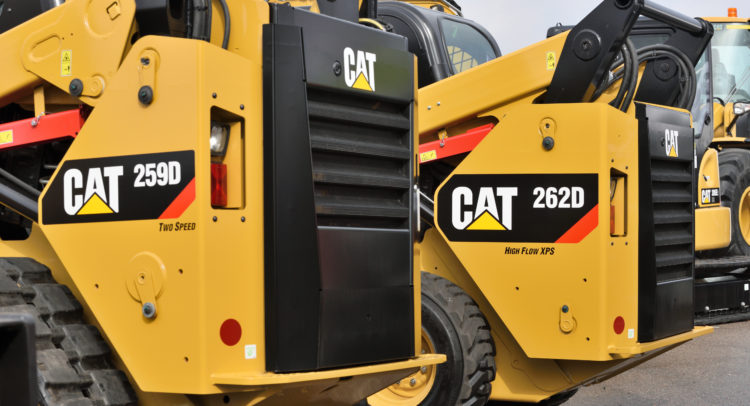Caterpillar (CAT), an S&P 500 company, manufactures construction and mining equipment. The company has been in business for nearly 100 years, has a global presence, and operates through three main segments: Construction Industries, Resource Industries, and Energy and Transportation.
Claim 50% Off TipRanks Premium
- Unlock hedge fund-level data and powerful investing tools for smarter, sharper decisions
- Stay ahead of the market with the latest news and analysis and maximize your portfolio's potential
For Q4 2021, Caterpillar reported a 23% year-over-year jump in revenue to $13.8 billion, surpassing the consensus estimate of $13.2 billion. It posted adjusted EPS of $2.69, which rose from $2.12 in the same quarter the previous year and beat the consensus estimate of $2.28.
The company ended 2021 with $9.3 billion in cash. In 2021, it repurchased $2.7 billion of its stock and distributed $2.3 billion in dividends. Caterpillar stock currently offers a dividend yield of 2.14%, compared to the sector average of 1.34%.
With this in mind, we used TipRanks to take a look at the risk factors for Caterpillar.
Risk Factors
According to the new TipRanks Risk Factors tool, Caterpillar’s top risk category is Macro and Political, with 8 of the total 27 risks identified for the stock. Finance and Corporate and Legal and Regulatory are the next two major risk categories with 7 and 5 risks, respectively. Caterpillar has recently updated its risk profile, adding and revising certain risk factors.
In a newly added Finance and Corporate risk factor, Caterpillar informs investors that its amended corporate bylaws designate a specific court in Delaware as the exclusive forum to resolve certain lawsuits that shareholders may bring against the company or its executives. It explains that its choice of exclusive forum for certain legal actions could limit shareholders’ ability to take disputes with the company to a judicial forum they may find favorable. But Caterpillar also cautions that it may incur additional costs if it were forced to resolve claims brought against it by shareholders outside its preferred court.
Caterpillar has revised a previously stated Production risk factor to stress the challenge of rising costs. The company explains that it uses a significant amount of steel and other commodities in its manufacturing operations. It says that if the prices of such commodities increase, its costs would also rise. Caterpillar warns that its business, operating results, and financial condition may be adversely impacted if it is unable to offset the cost increases by raising the prices of its products.

Analysts’ Take
Evercore ISI analyst David Raso recently maintained a Buy rating on Caterpillar stock but lowered the price target to $255 from $267. Raso’s reduced price target still suggests 30.94% upside potential.
Consensus among analysts is a Moderate Buy based on 8 Buys, 5 Holds, and 1 Sell. The average Caterpillar price target of $236.79 implies 21.59% upside potential to current levels.

Download the TipRanks mobile app now.
To find good ideas for stocks trading at attractive valuations, visit TipRanks’ Best Stocks to Buy, a newly launched tool that unites all of TipRanks’ equity insights.
Read full Disclaimer & Disclosure
Related News:
Novavax Receives Approval From Health Canada for Covid-19 Vaccine
Coca-Cola Hikes Dividend by 4.8%; Shares Up 2%
Dropbox Sinks More Than 5% Despite Upbeat Q4 Results
















